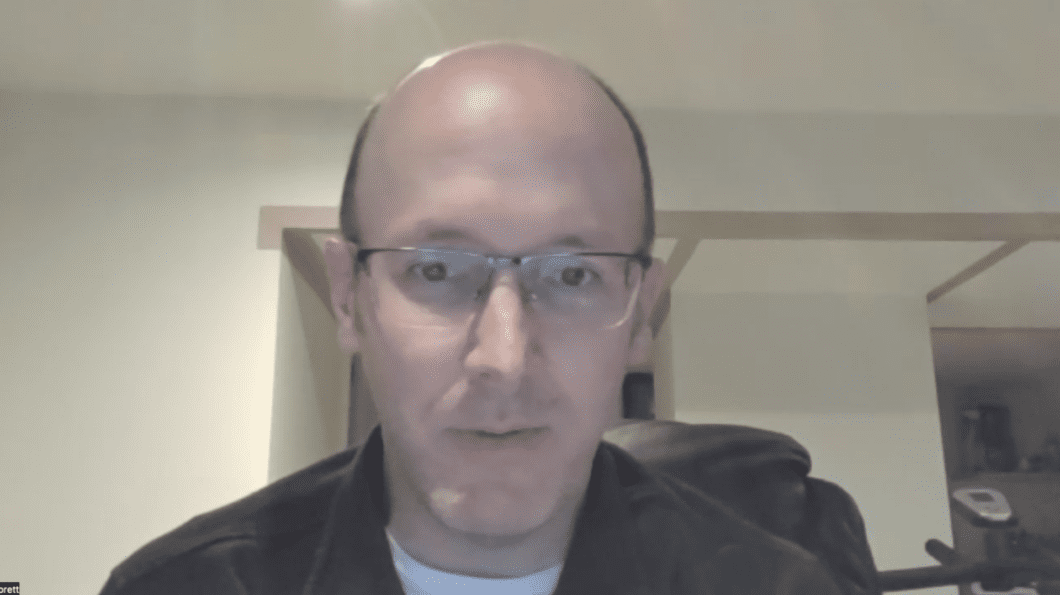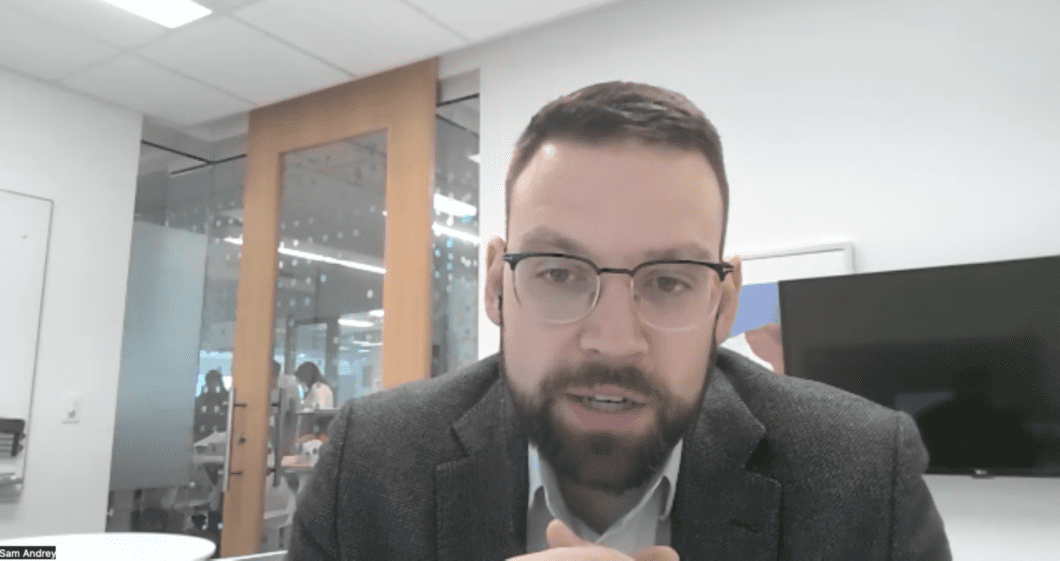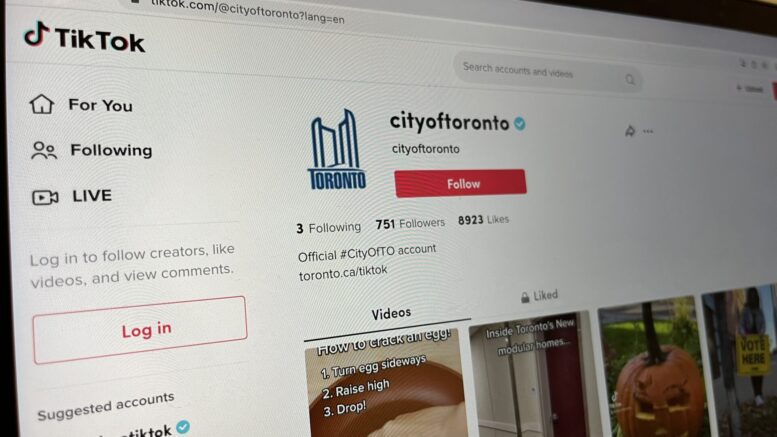The City of Toronto should follow the federal government’s decision in carefully reviewing the dangers of having TikTok on government-issued phones, three experts say.
“Whatever kind of communication benefit you’re getting from being on these platforms, is not worth the potential trade-off of security,” said Matt Elliott, a Toronto Star columnist and creator of the City Hall Watcher newsletter.
On Feb. 28, the federal government announced a TikTok ban on all government-issued phones due to security concerns. TikTok is a social media platform, whose parent company, ByteDance, has a questionable relationship with the Chinese Communist Party. TikTok has been criticized for collecting too much of users’ personal data, including contacts, calendars and locations.
Elliott said the municipal government only started to emphasize the importance of cybersecurity and invested lots of money in it in the past few years. There is already “some recognition at city hall that they were a bit late and to the point where they needed to realize,” he said.
In an email to The Toronto Observer, City of Toronto said it is “actively continuing to monitor privacy and cyber security risks associated with TikTok and have not yet decided to restrict the application on city-issued mobile devices.”
Some other cities in Ontario, however, have already followed the federal government’s lead.
Most platforms gather user information

“Most platforms gather large amounts of data about you,” said Brett Caraway, an associate professor of faculty of information at the University of Toronto who specializes in social media.
Most social platforms trace users’ data and online movement and sell that information to advertisers. But “TikTok, as far as the platform is concerned, does harvest a lot of information about its users in a rather indiscriminate way,” he said.
Caraway said TikTok became an issue partly because of the ongoing political tension between Canada and China. ByteDance has been accused of providing information to the Chinese government. But he said that considering this phenomenon unique to China “is a little bit disingenuous.”
In 2019, for example, the U.S. Federal Trade Commission imposed a US$5-billion penalty on Facebook because it violated consumers’ privacy.
Proponents in using TikTok

But some people still see useful applications for social media in a government setting.
Elliott and Caraway said Toronto police and opposition parties such as the New Democratic Party or Conservative Party of Canada, use TikTok to engage with the public, particularly youth, because it’s effective.
“It’s tempting to be where people are, right?” said Sam Andrey, the director of policy and research at the Ryerson Leadership Lab think-tank.
Data security is important to everyday user
People increasingly use their work devices for personal purposes, but “there are not a lot of rules in Canada about where a Canadian’s personal information can be stored,” according to Andrey.
“How secure is our data when it’s leaving the country?” he said.
Andrey said there are requests within Canada for a privacy law similar to Europe’s General Data Protection Regulation, which restricts the transfer of users’ personal data only to countries that are deemed to have comparable privacy protections.
Prime Minister Justin Trudeau has said he hopes the federal government’s decision not to allow TikTok on its devices will prompt discussions about privacy and data sharing.
“Certainly, I suspect that as government takes the significant step of telling all federal employees they can no longer use TikTok on their work phones, many Canadians … will reflect on the security of their own data and perhaps make choices in consequence,” he said at a Feb. 27 press conference.
After the federal government’s announcement, some of the municipal governments, such as Vaughan, Kitchener and Ottawa, applied a similar restriction on government-issued phones.
Caraway echoed Trudeau’s sentiments by saying, “Everyday users need to think about what it means to have every aspect of your life recorded and archived somewhere … We’re losing sight of why privacy matters.”

